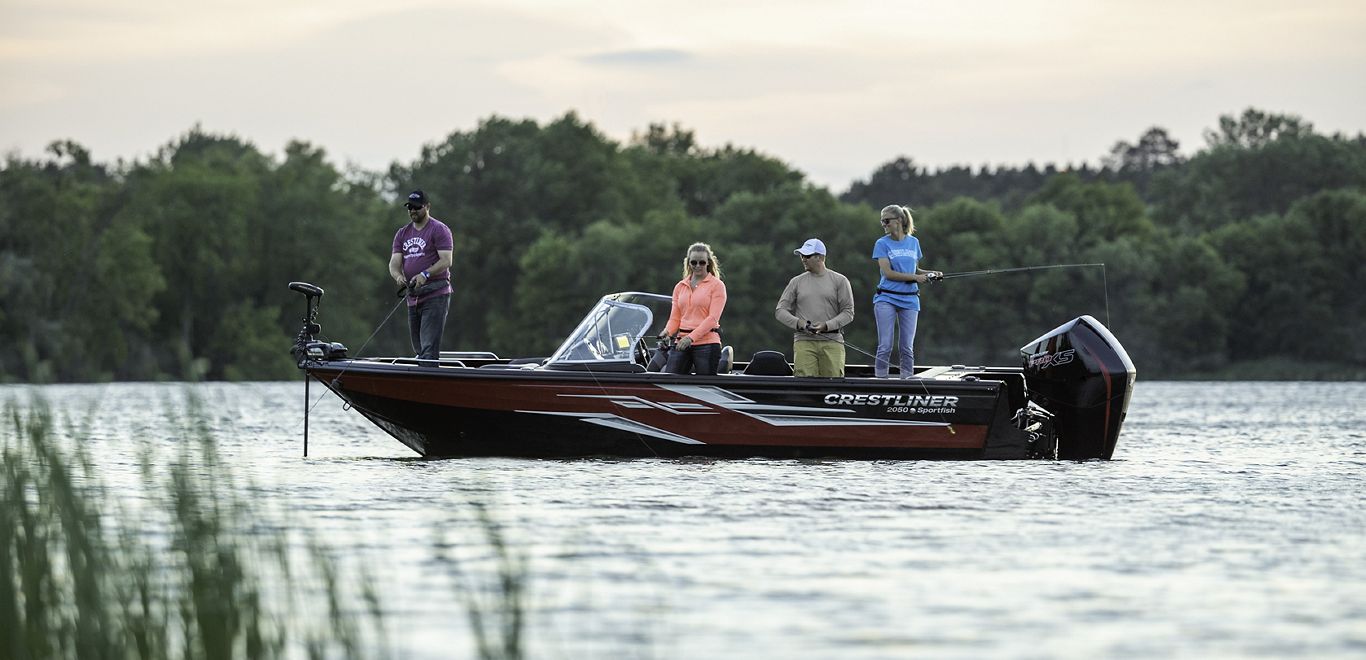
There were 12 million recreational boats registered in the United States in 2017. Whether you are one of those millions or someone who enjoys renting a boat every now and again, there are plenty of people who enjoy a good trip out on the water. You've probably enjoyed a warm summer's day on the water but what about those crisp winter days?
Swimming and suntans may be off for the year at the end of the summer season but boating doesn't have to be. There are a few things that you should keep in mind during the winter season though. Read on to find tips for safe winter boating!
1. De-Ice Decks
When temperatures get low, there is always a chance that ice can form. This is especially true for your decks which can create a dangerous area for you and your boat mates.
Before you head out on your adventure, check for ice and give the deck a good wash with salt water. Brush it to remove any of the rougher patches.
Wearing the right footwear can help keep you grounded as well. Be sure to have shoes that provide a good grip. In addition, reach for shoes that will keep your feet and toes warm.
2. De-Ice Mooring
Depending on the type of boat you are using, mooring can be a concern as well. This can make boarding and loading a hazardous task. There are specialty cleaners available that you can use to reduce the amount of ice.
As previously mentioned, salt water can do the trick when used with a good brush. Always operate with extra caution when boating in winter.
3. Avoid Condensation
During the winter season, condensation is a much larger concern. It can be difficult to properly prevent it from happening.
This is because of the cold outside temperature and our own warm breath gathering inside the cabin. Other factors that contribute to condensation are cooking, steam, wet clothes, and so on.
Here are a few tips for avoiding condensation:
- Use a cockpit tent
- Use a humidifier
- Heat the boat with an electric heater
- Dry everything that might be wet
- Insulate the hule
- Cook food outside or bring pre-made meals
- Keep air flowing
Why don't you want condensation? That's because condensation produces mold.
4. Check for Leaks
Any time that you are going on a boating trip, you don't want any leaks. This is even more of a concern when boating in cold weather.
When water starts to gather in the cold weather, it freezes. When it freezes, it starts to expand. This can cause major damage to areas of your boat. Some of the most common areas for leaks include portholes, windows, seacocks, and drains.
The biggest concern of all is that a leak would cause you to sink. You certainly don't want to be jumping into the freezing water to avoid sinking with your boat.
5. Fuel Up the Boat
In the off-season which is considered the colder months, many of the convenient fuel stations and restaurants are closed or they have limited hours. It's always best to fuel up your boat before you hit the water.
In another effort to avoid running out of gas, you can bring along some extra fuel in case you get into a bad situation. This is an important consideration when it comes to food and drinks as well.
6. Keep the Battery Charged
Batteries in boats, cars, and pretty much everything else often have a difficult time operating in colder temperatures. They have to use a lot more power to get the boat started.
That's why it's always best to keep your battery topped off in the winter season. You can also install a small solar panel charger or get a trickle charger or float charger to use when the engine isn't providing a charge.
If you don't feel like getting any of these extras, you can simply take the battery home with you to charge as usual. Regardless, you'll want to make the effort for the battery otherwise you risk being stranded.
7. Check the Engine
At the end of the summer/fall season, have your engine checked. Top off the coolant and refrigerant to ensure that the engine doesn't freeze. There are plenty of precautionary measures that your boat mechanic can recommend if you let them know your plans.
In addition, you should always check the oil level of your boat. You can also pour non-toxic antifreeze through the raw-water system and on the engine to help avoid freezing.
Unfortunately, if you own your own boat then you'll have to cover the costs of whatever your engine needs to create a safe environment. If you are part of a boat club, then this should already be taken care of for you.
8. Check Your Insurance and Registration
Don't forget to get your boat registered. Sometimes at the start of the new season or during the winter months, many boaters completely forget to check on the validity of their registration.
Insurance is important as well. If you are new to boating in the winter, you may have forgotten about canceling your insurance at the end of the warm season. Many boat owners do this to avoid paying the extra cash for a boat they don't plan to use. You can also speak to your insurance provider to ensure that you are properly covered for concerns when winter boating.
Of course, if you are renting a boat instead of taking out your own, you have the luxury of knowing you are covered.
9. Have Equipment for Emergency Communications
A portable global positioning system (GPS) or marine VHF radio is nice to have if anything goes wrong during your winter boating adventure. With the GPS you can use it to track your exact location. Using the marine VHF radio, you can contact the Coast Gaurd and other authorities to send out distress signals.
When you're on the water, it's pretty common to run into areas that don't have any cell service. Beyond lack of cell service, you could have a dead battery on your phone.
No matter the reason that you can't use your phone, these emergency communication devices are super important when something happens. You definitely don't want to be stuck out on the water in cold temperatures.
10. Give Someone Your Route Plans
Never go out on the water without telling someone where you're headed and what time you expect to be out. Any time that you go boating you should lay out a float plan and follow it.
If your plans change, inform the person so that they don't worry about where you are. There are far fewer people out on the water during the winter months. Which can be quite relaxing in many ways, but it is also a risk.
When you encounter fewer people, you have less of a chance for finding help in passerby's if you run into any issues. This is another reason that you should have emergency communication equipment and other gear that can help you alert someone that you are in distress.
11. Bring Someone with You
The buddy system is a great way to protect yourself and have an enjoyable boating experience. Boating is much more fun when you have a capable companion along with you. If something happens to you, they will be there to help and notify someone.
Even if you have someone to come along with you, still let another person know where you are going and when. This is beneficial because you know that if you and your partner can't alert someone that you need help then the trusted person can come to you or have someone come to you.
12. Consider the Weather
Obviously, when you choose to go boating in the winter there are certain things that you're going to have to deal with. However, that doesn't mean just going into it no matter the conditions.
You'll need to be sure that it is truly a safe environment to be out in. High winds, below-freezing temperatures, snow, and so on are all conditions that may warrant you to skip your boat trip that day.
Crisp, winter days are beautiful but there are certain conditions that will simply make it a miserable time. Remember that even when it is cold outside, the sun's ultraviolet rays are still at work. That means you'll need to wear sunscreen and cover up to avoid getting a sunburn.
13. Get a Cabin Heater
If you plan to be out for a couple of hours, then a heater might not be necessary. But, being warm is better for your safety and your enjoyment.
There are lots of different types of boat heaters like electric, propane, and hydronic. An oil-filled radiator is great for overnight use while you're on shore. This helps with condensation too.
Diesel heaters or air-blown heaters are best for when you are out on the water. It's important to remember though that you need to have a fully charged battery and a full tank of gas.
On another note, you should avoid plugging in too many electrical items. If your wiring isn't spot on then you could risk an electrical short which can lead to a fire.
14. Keep Trips Shorter
As you probably already know, the sun isn't out as long as it is in the summer months. This is unfortunate for boaters as that means you'll need to plan shorter trips.
Allow yourself plenty of time to get back to the marina and pack up. Packing up in the dark is much more dangerous than doing so in the light.
If you are planning to take an overnight trip, plan to get to your destination before the sunsets. Remember that you will face much colder temperatures on the water at night.
When you're planning out your boating adventure, be sure to check what time the sun goes down. You can find this information on your weather app on your phone. You can also do a quick Google search to find this time as well.
15. Bring the Right Gear
There is an endless amount of gear that you could choose to bring along with you. You most likely are already aware of safety items that you need any time of year such as flares, life vests, and so on.
You'll also want to dress appropriately for winter boating. You have so many brands to choose from that have come out with innovative technology providing warmer and more lightweight clothes. As far as fabrics do look for wool or quick-drying synthetics.
Cotton is not a good option as it absorbs moisture. Reach for wind-proof fabrics, insulating layers, thick gloves, face coverings, warm hats, thick socks, and appropriate shoes. You should also consider immersion suits in case of an emergency.
While staying warm is key, you also want to be able to move freely. This is because in case you need to enter the water, you'll need to be able to swim or at least tread water.
Googles or the correct sunglasses are necessary as well. The sun will still be out and about and you'll need protection for your eyes from the water and other environmental factors.
Always Be Prepared When Winter Boating
Winter boating is more hazardous than summer boating, it's true. That doesn't mean that you can't take the proper precautions to enjoy a great winter day out on the water. With these tips, you'll be one step closer to the knowledge and safety you need to go on your winter boating adventure.
Do you want access to a complete fleet of private boats? Read about Freedom Boat Club, how you can become a member, and join us to start enjoying the water.
